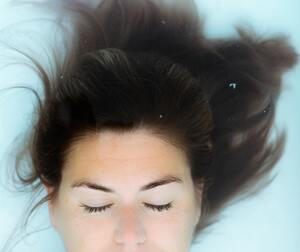02 Jan Sleep Apnea and Anxiety: Which Is the Real Nightmare?
Sleep apnea can affect many parts of the body. It can raise blood pressure, change kidney function, and even cause heart disease. Anxiety is another condition experienced by millions that can also lead to varying health conditions. But did you know that sleep apnea and anxiety may have a connection? At Crosspointe Sleep Solutions, we don’t just want you to understand the risks of sleep apnea. We know the importance of recognizing the correlations between sleep apnea and anxiety, along with your options to fix it.
Anxiety
One of the most common issues that affect sleep apnea sufferers is anxiety. When your body doesn’t get enough deep sleep, you don’t have the energy your body needs to go through your day. This lack of energy makes it hard for your brain to deal with stress. You can expect increased anxiety levels when you’re not properly resting at night. Ongoing struggles to sleep can also cause you to worry about going to sleep, which cuts into your sleep even more, setting you up for a cycle of anxiety and sleeplessness.
Nightmares
Whenever your sleep is disturbed, you may be more likely to have nightmares. When the brain is deprived of oxygen, like, during an episode of sleep apnea, regular dreams can take a frightening turn. Your brain feels that you are at risk and tries to tell you this through your dreams. The longer sleep apnea goes on, the more frightening and vivid the nightmares can become. And when you’re experiencing nightmares every night, you can feel more anxious about going to bed. The anxiety can then fuel your subconscious mind into more vivid dreams.
Night Terrors
Night terrors are very different from nightmares. Most sleepers awaken quickly and remember a nightmare upon awakening, sometimes all too vividly. However, most who suffer from night terrors are difficult or even impossible to wake up and have no memory of the episode. The sufferer may scream, cry, flail, walk or even punch or push others. Because sleep apnea disturbs sleep, it prevents the brain from releasing the proper hormones that keep the body quiet during sleep. So it can be a common culprit for night terrors.
The good news is sleep apnea and anxiety don’t have to rule your existence. At Crosspointe Sleep Solutions, we provide a wide range of treatment options. We can root out the anxiety and sleeplessness and get you back to a calm, relaxing night’s sleep. Take a moment to contact us if you or someone you love suffers from sleep anxiety or apnea-related nightmares.
